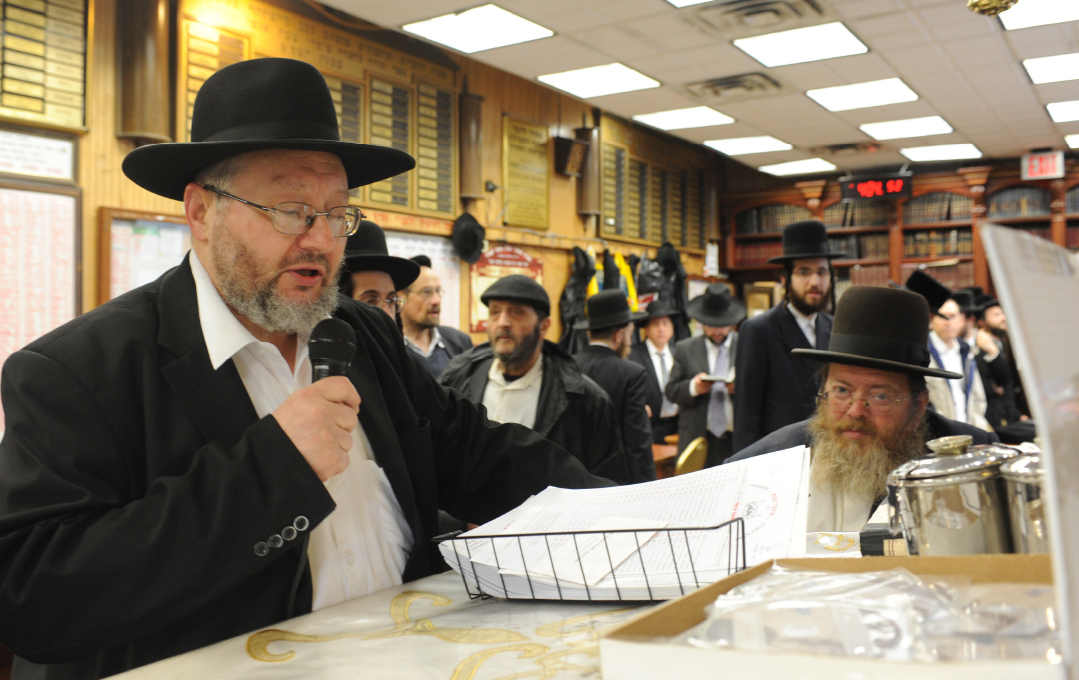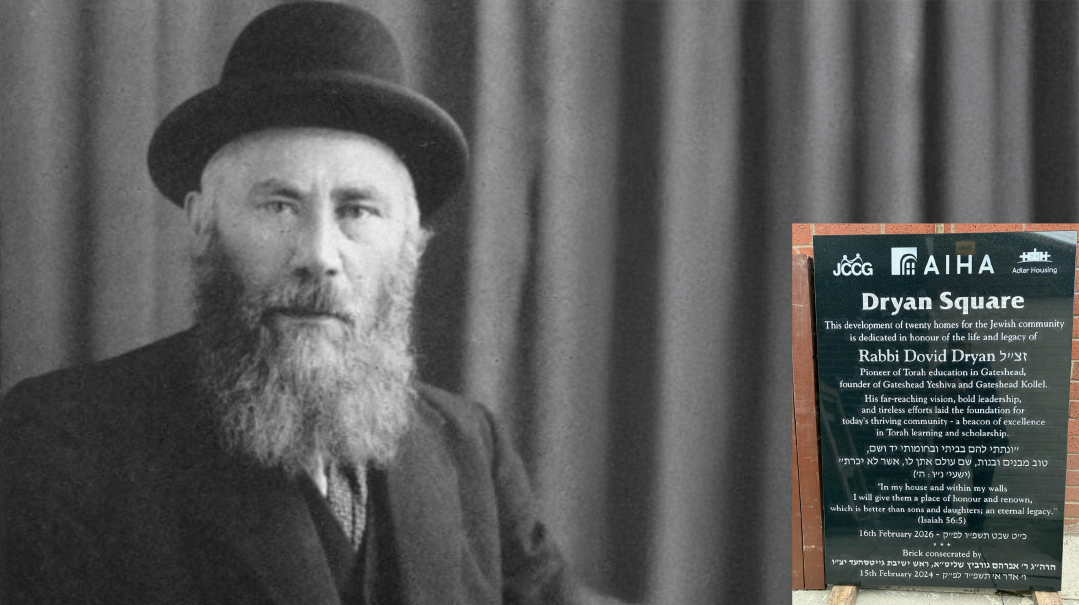Hillel Shammes Takes a Bow

He's an international celebrity for his role at the shul on 13th Avenue and 53rd Street

I
f the Shomrei Shabbos shul is an unlikely claimant to the title of America’s most trafficked minyan factory, its two floor managers, Moshe Metzger and Hillel Mozes, are the equally unlikely heroes. Together, the pair shepherd the minyanim that begin with “tallis and tefillin before Barechu” and continue for 22 hours, all while managing the sandwich and cholent station, the ride gemach, and a coffee and tea room that rivals Starbucks.
Hillel Mozes in particular has become an international celebrity for his role at the shul on 13th Avenue and 53rd Street — his ebullient disposition, his ironclad mental archive of faces, not to mention his renowned ride service that matches hitchers with people driving to Staten Island, Lakewood, or even Cleveland.
Boro Park was abuzz last Tuesday over a small ad placed in the Luach Hatzibbur, a free publication distributed to neighborhood shuls, announcing that Shomrei Shabbos was seeking a new gabbai. Hillel Mozes, it turned out, was retiring after only 45 years on the job.
“His wife called me a while ago and said she wants him to retire,” said Moshe Metzger, in between taking a small snack in a basement room and continuing his pushke-pushing among the three simultaneous minyanim then taking place. “She said I should start looking for a replacement.”
Metzger, who’s been a regular mispallel since 1957 and a gabbai since 1973, is on duty from six in the morning until eight at night. That’s when Hillel comes in, carrying on until the last stragglers daven Maariv at 4 a.m. Metzger and Mozes have been working together since 1973, when the shul turned into a minyan factory.
“Boro Park was changing,” Metzger said. “Hillel, he didn’t change at all in all his years.”
Getting a hold of Hillel Mozes is not easy. I finally reach him — “for one minute only,” he pleads, telling me how he never gives interviews, how he once refused a New York Times reporter, and how a media outlet once fooled him into giving an interview.
“Don’t go away from me,” he tells a young chassidish man standing nearby. “I want to get you a ride to Staten Island or Lakewood.”
“Back to you,” he looks at me. “Wait, I have another incoming call.” Turning to a man standing on the stairs, he says, “I don’t have a ride for you yet.”
“I’ll give you my number—” begins the man, apparently from Eretz Yisrael.
“I have your number!” Hillel exclaims, almost indignantly. “I chazzered it in my head.”
Another person approaches. “Hillel, need anything? I’m going to Williamsburg.”
“Nah, Williamsburg I don’t need. I need Lakewood.”
Hillel has a hundred things percolating in his short-term memory at any given moment, but his mental storehouse holds thousands of stories. His most memorable tale is a true Hillel classic, those around him agree when he retells it on a typical Thursday night.
It happened a few years ago, when a man by the name of Swain from South Africa — “a sweetheart of a yungerman” — asked for a ride to Baltimore.
“Mamesh Baltimore,” Hillel repeats for emphasis. “I screamed ‘Baltimore’ for an hour and a half just to make him feel good.”
Just then Leibel — “also a sweetheart of a guy” — came tottering in, obviously inebriated. He was disturbing the mispallelim, so Hillel took him outside.
“I can’t leave Leibel alone,” Hillel says. “I know he lives on Eighth Avenue, so I asked some people, ‘Please, can you just drop him off at Eighth Avenue?’ No. After 20 minutes, I see a guy going into his van. So I go across the street and say, ‘Do the shul a favor and take him to his home. On my word, he’s harmless.’ He says okay.
“As the van pulls away, a car slides into that very spot and a boy steps out, asking for a ride to Lakewood.
“I say, ‘Yeah! This is the place!’ ” Hillel recounts. “I then take a look at this car he got out of and I see a Maryland license plate. I go over to the driver and say, ‘Are you going to Baltimore?’ He says yeah, in about ten minutes. I say, ‘There’s a guy Swain on 43rd Street — can you pick him up?’ He says no problem.”
Classic.
Hillel recently had heart problems and had a pacemaker inserted. The Jewish heart with room enough for 250 people every night is now regulated by a machine.
“He gets along with everybody,” Metzger says. “He never says no to anybody. If anybody wants something, he takes care of it.”
The most memorable thing about his associate? “He’s never sick,” he says. “He never once called in sick.”
Despite his pending retirement, Hillel is not going anywhere soon. “I’ll be connected to things that are not tied to the gabbai job,” he wants to assure readers.
“There are a lot of things that go on in this place,” he notes.
(Originally featured in Mishpacha, Issue 798)
Oops! We could not locate your form.












